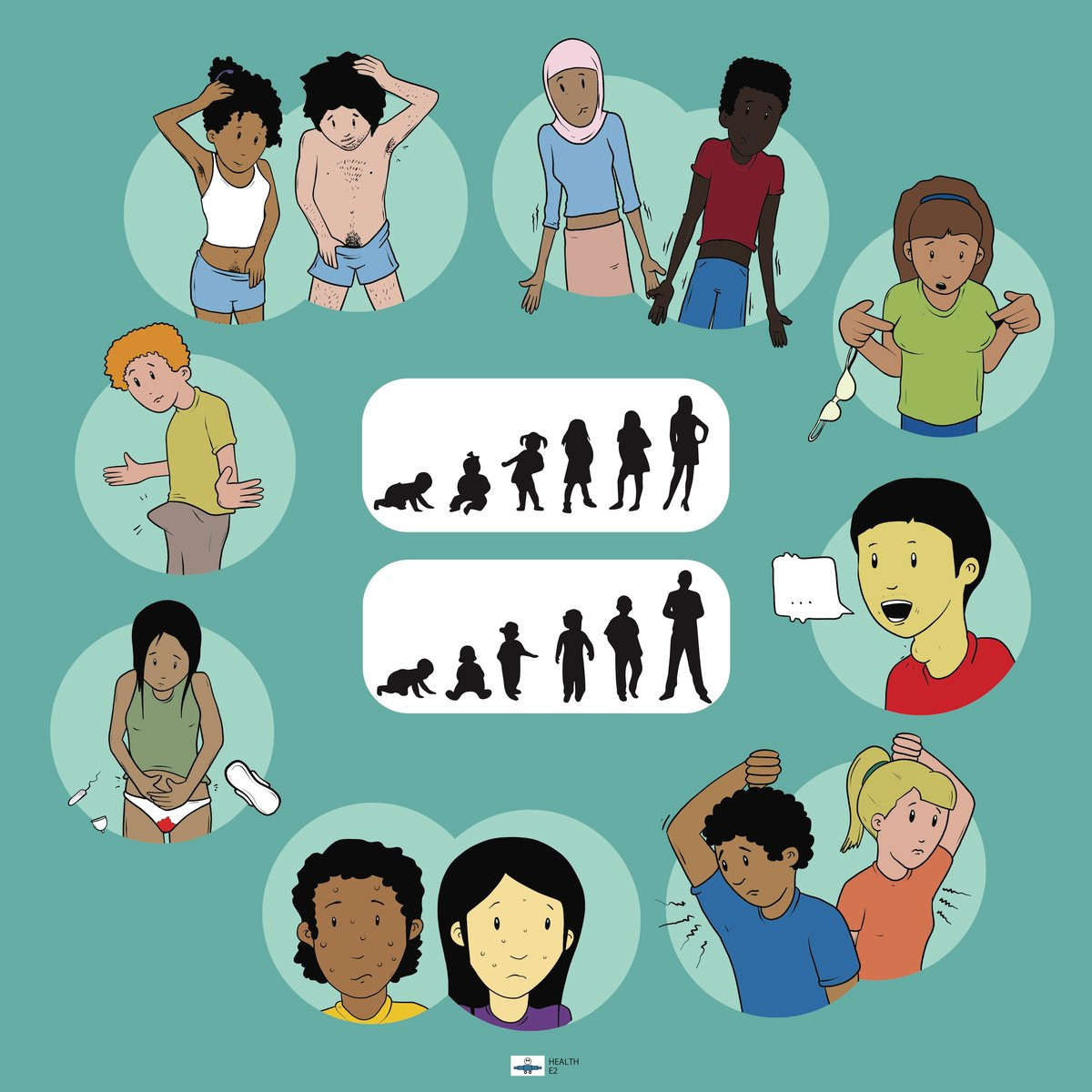Puberty and the changes that come with it
Do you feel that your body is
changing? Do you get mixed emotions easily and quickly? Do you feel like you
have butterflies in your stomach looking at a person you like? Also, have you
started feeling attraction towards others romantically?
If yes, congratulations! You are
becoming an adult!!! You are going through puberty!!!
Puberty is a phenomenon that
occurs in every individual during the process of growing up. The process
includes a series of physical, psychological, and emotional changes and can also
be seen as a way your body is telling you that it is transitioning from
childhood to its adult form. The broad categories of changes are:
1. Growth and development of the
body (internally and externally)
2. Growth and development of
sexual organs
3. Brain development
4. Social and emotional changes
Every individual may start going
through puberty at a different age, and all the changes one experiences may not
be identical. However, a general consensus has been developed around the
subject matter. The signal comes from within the body via special chemicals
called “hormones”. When the brain reaches a certain level of maturity, there is the release of these hormones that signals the beginning. Along with the brain,
another system that starts releasing hormones are the reproductive organs,
commonly referred to as the gonads, and ovaries in females, and testes in males. The
development that occurs due to these sex hormones are known as secondary sexual
characteristics. The typical age at which this starts is 10-11 years for girls
and 11-12 years for boys. It is perfectly normal for the age of onset to be
earlier i.e. from 8-9 years onwards. It takes anywhere from 18 months to 5
years for completion.
This paragraph will focus on the
key physical changes that occur in an individual with female gonads i.e.
ovaries. The first change is growth and development of breasts, which are
masses of tissues present on the chest. It is perfectly normal for each breast
(right and left) to develop at different rates, and a bit of tenderness i.e.
pain to be experienced. Following this, there will be a growth spurt, i.e.
different body parts like the head, face, hands along with the limbs and torso
will grow at a fast rate. During this spurt, there is also a change in shape of
the body, with hip widening being an important contributing factor. Following
the growth spurt, there is growth thick, dark, curly hair, called pubic hair,
under the arms and around the external sex organs. Females also start getting a
clear or whitish vaginal discharge, which may be noticed first as a wetness in
the underwear. Approximately 2-4 years after breast development, the female
will experience her first period.
In individuals with male gonads, i.e. testes,
the predominant sex hormone is testosterone. Due to the release of large amount
of this, there will be a similar but longer growth spurt. There is also minor
breast development, which should be reassured as completely normal. This is
followed by growth of pubic hair in the armpits, chest, lower abdomen and the
testicles. There is also thickening of the hair on the arms and legs. The child
will start having erections (penis becomes hard and lengthens) and ejaculating
(release of semen after erection), which might even occur during sleep. This is
also called “wet dreams”. There is also
a prominent growth on the neck, the Adam’s apple, and voice becomes deeper.
Other physical changes common to
both sexes, is brain development which influences the overall behavior. Lung
performance improves, bones become thicker and muscle mass increases. There is
also an overall gain in weight, and there needs to be an intake of a nutritious
and wholesome diet. There is appearance of acne and hair starts becoming
oilier.
How does one deal with all these
changes happening all at once?
1. The first thing to do is tell
yourself that it’s completely normal, and that everyone has to go through it at
one stage or another.
2. Talk about it with your
parents, teachers, and older siblings. You will find that it helps to normalize
things.
3. Eat a balanced diet and move
those new muscles! You’ll find yourself feeling lighter and happier.
4. Visit a doctor if you feel
anxious, develop cystic acne or smelly discharge. For the female sex, it is also
important to visit the gynecologist if you do not get your period till you are
16 years of age.
